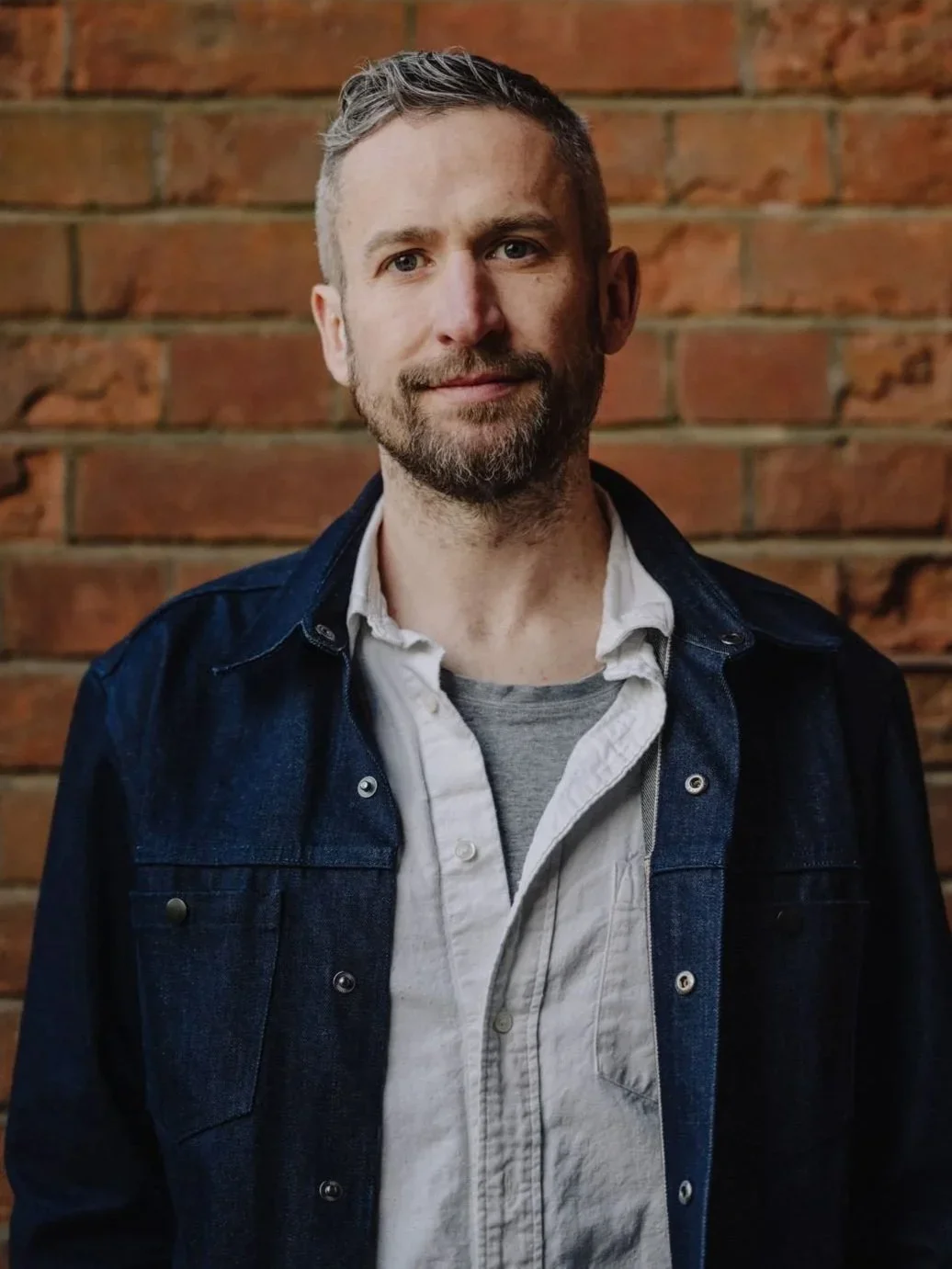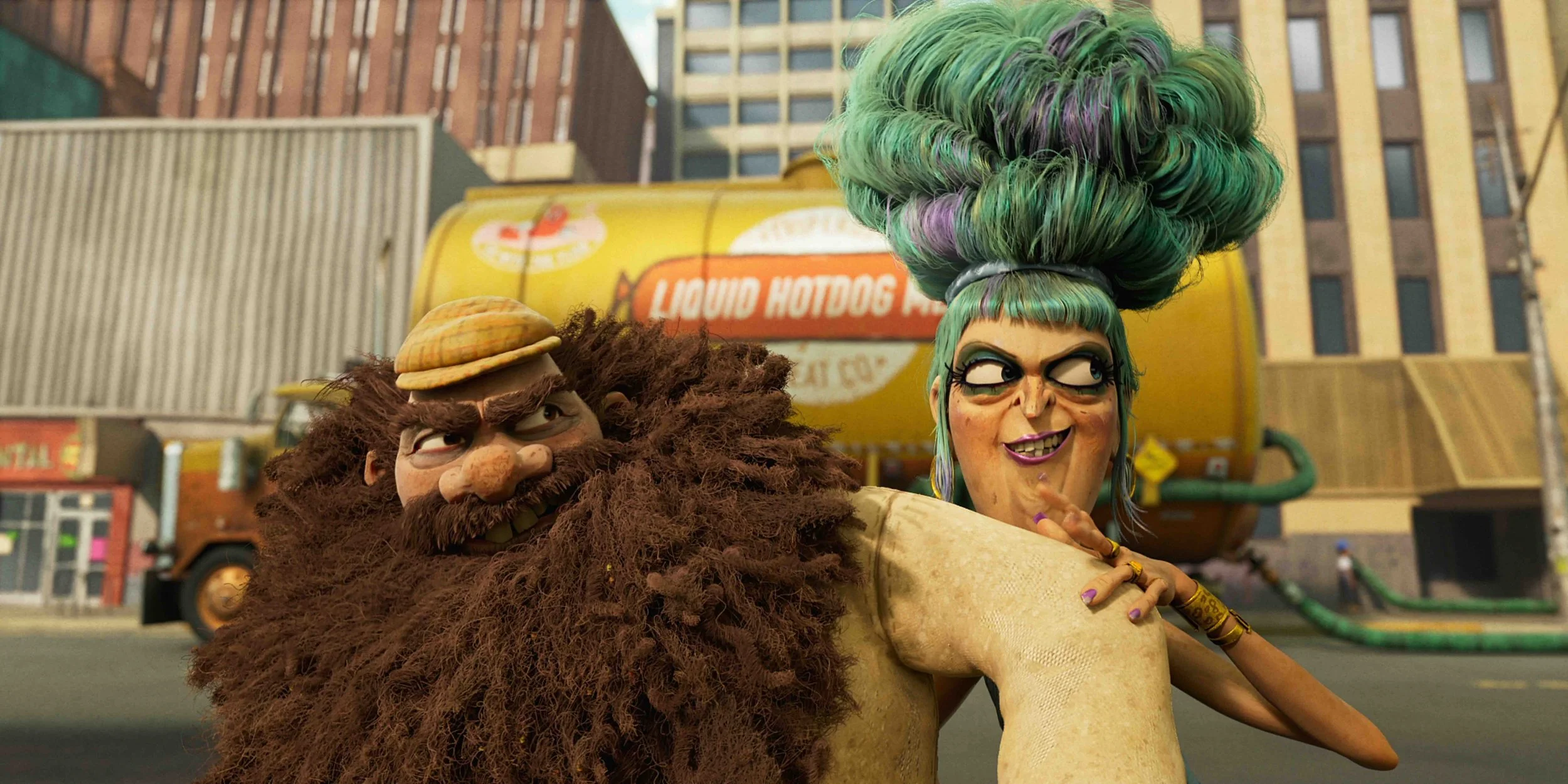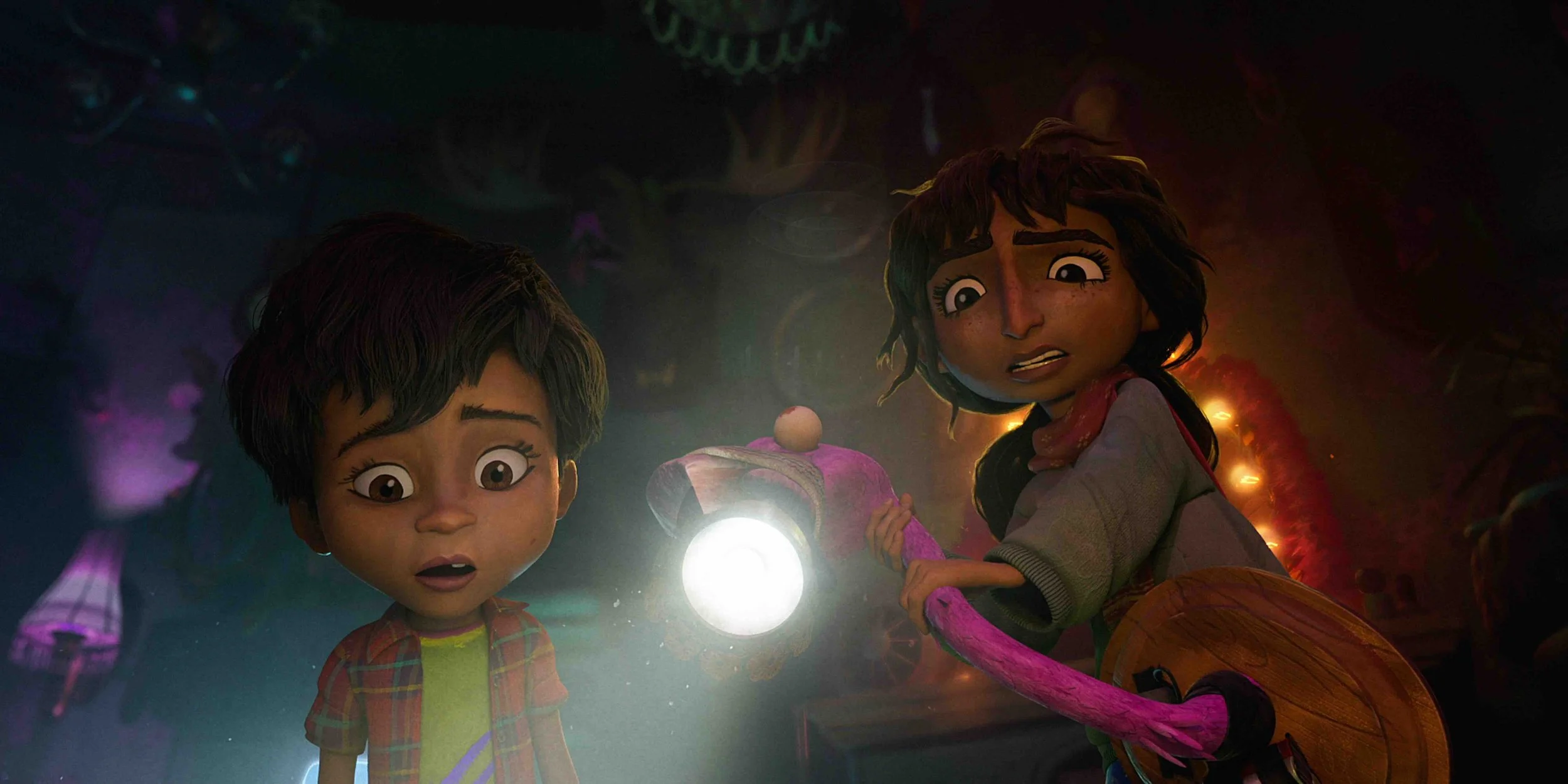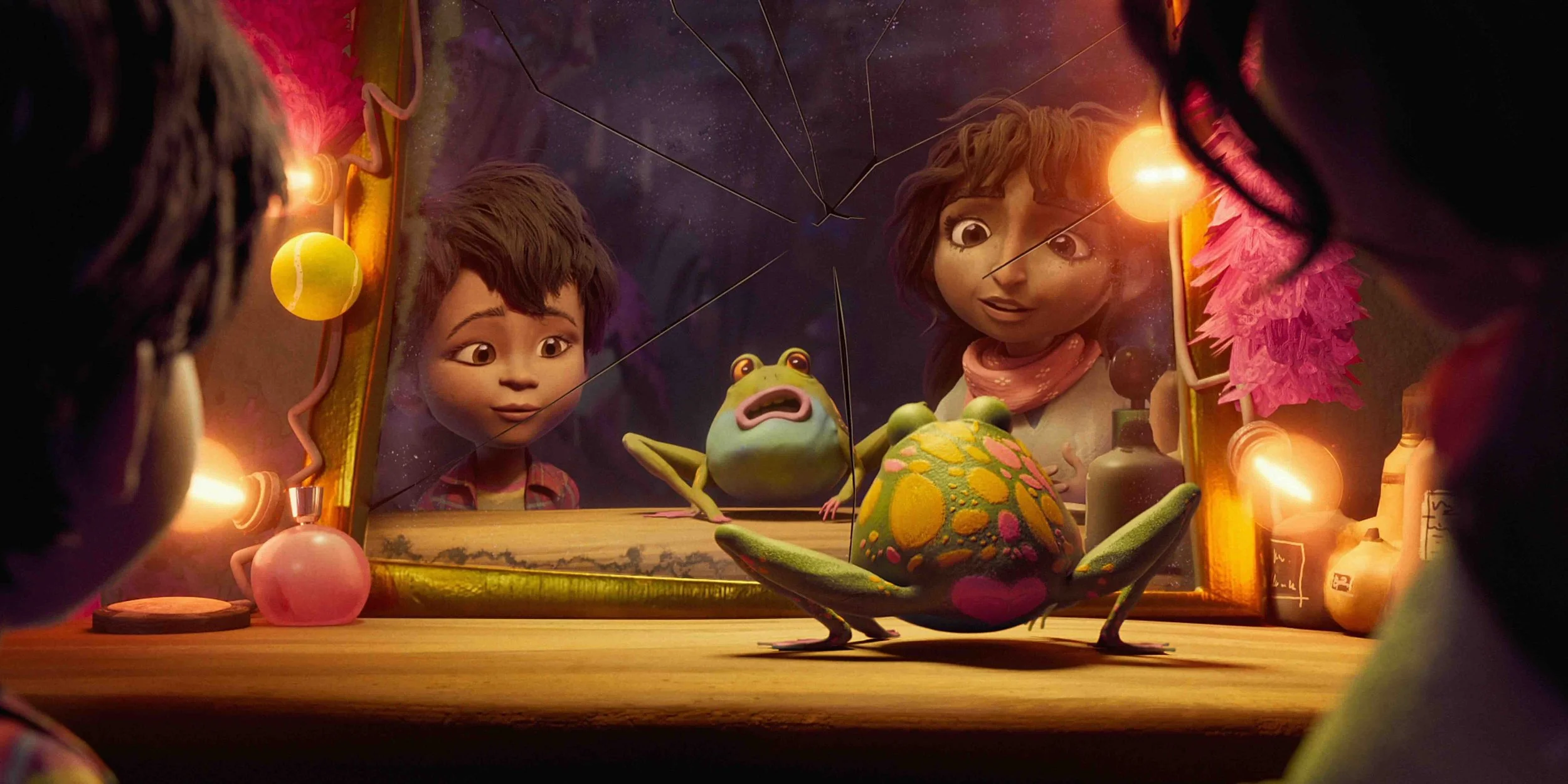Oli Julian Talks Musical Mania of Roald Dahl’s “The Twits”
Multiple generations of children have grown up with the stories of Roald Dahl. Charlie and the Chocolate Factory may reign supreme as his most famous, but Dahl is also responsible for books like Matilda, The BFG, and more. One novel that has flown under the radar of the general public is The Twits. In fact, it’s only in 2025 that The Twits has been adapted for the screen, even though conversations about an adaptation go back to 2003. Before Oli Julian was tapped to compose the score for the Netflix film, he was a kid growing up on Dahl books, messing around in his childhood bedroom with recording equipment.
courtesy of Oli Julian
“I was a drummer originally, but I started teaching myself the guitar and the piano,” Julian explains. “I was getting into production on a four-track and overdubbing myself. Singing, doing harmonies, and everything. That all happened at the same time as me being an angsty teenager, writing songs about crushes.”
“I did a master’s in music production and then I ended up getting a job as a runner in a jingles company, like a music production company for adverts. I was a tea boy, making tea and toast for people for a long time, and then finally got my first ad with something I’d written. Then transitioned to TV and did a lot of sitcoms. In the last five years, I’ve done more film work. It’s a very roundabout way, or actually kind of traditional in one sense, of starting at the bottom as it were, and working your way up.”
“I always kind of knew I wasn’t going to be like John Williams or an orchestral, classically trained writer, because that’s not really where I come from,” Julian goes on. “I’m a kind of bendy person and it was in the late ’90s, where you had films like Eternal Sunshine of the Spotless Mind with Jon Brion’s score. That made me realize scores don’t have to be all strings and posh music. They could be…anything. That got me thinking, oh, I could do this. I could do this with the skills I have and with the way I write.”
Much like actors, composers have said that it’s comedy that’s hardest to truly nail down. Drama is easy, but comedy requires a certain understanding of timing and dexterity that can be difficult to capture. Humorous projects come easy to Julian because of the way he got started. In cutting his teeth on advertising jingles, he learned how much comedy, even in scores, relies on brevity and versatility.
“One day, you’d be coming into work and doing an orchestral piece, and then the next minute you’d be doing some kind of ska thing,” Julian recalls. “That really helped me in comedy because I did a lot of sketch shows where you had to really jump around different genres and skill sets. Within that, I was always slightly worried that my signature sound would get lost, because you were always doing different shades of things. Over time, I’ve learned to accept that I do have a sound somewhere in there, and the instrumentation or the style is just the shell for that sound that does come through.”
Courtesy of Netflix © 2025
The Twits marks Julian’s first foray into feature-length animation. The film centers on Mr. and Mrs. Twit (voiced by Johnny Vegas and Margo Martindale), who deeply hate each other, but love an amusement park called Twitlandia. After the closure of their beloved park, the couple vows to exact revenge on the town of Triperot. It’s up to two children and a family of magical animals to bring the Twits down.
One of the major differences in scoring for animated films is the length of time that goes into a project. In the case of The Twits, animation began in 2023 by the Jellyfish Pictures studio. Julian was part of the team for much of the time, and describes the stop-and-go nature of this type of production.
“You come in at different times, and you might duck out for a bit while they rewrite or do some more animation,” Julian explains.
“In terms of the music itself, everything is compressed. Everything is about one-and-a-half times faster than it would be in real life. You’ve got people running around doing things constantly. If you’re Mickey Mouse-ing things, then you really have to be very nimble and move with the action.”
“A lot of characters are more heightened in animation,” Julian continues. “You have very colorful characters, and the music needs to lean more into that heightened sense than it would do in a straight drama. Everything’s a bit more in Technicolor, a little bit faster, and a little bit richer, which has been a lot of fun, but also a lot of work.”
Like many other kids growing up, Julian read Dahl’s books. Having grown up in the United Kingdom, there’s a little bit more weight in signing onto a project like this. Scoring The Twits is more than another job, it’s a chance to revisit his adolescence in a rewarding way.
Courtesy of Netflix © 2025
“I read The Twits as a child many times, and I’ve been reading it to my own kids,” Julian says.”It’s a huge honor and a privilege to be able to, to contribute in some small way to the canon of material.”
“Chatting to Phil [Johnston], the director, when we first started, we felt fairly free to move it in the direction we wanted to. There’s no right direction to do Roald Dahl, and every manifestation of his work so far has been quite different.”
In developing the score for The Twits, Julian turned to unexpected instruments to form the backbone. This may very well be the first score to have a musical saw be the guiding force. For those who aren’t familiar with uncommon instruments, a musical saw is genuinely a saw. A player sits with the handle between their legs, bends the blade into an S-curve, and uses a bow of sorts to strum. Along with the musical saw, Julian regularly wove a jaw harp into the foundation of the score.
“I don’t play either of those instruments very well at all, but that didn’t stop me from writing music with them. In fact, the musical saw was the instrument that got me the gig,” laughs Julian. “In my first Zoom with the whole team, I was demonstrating the ideas I’d had, so I tried to play the musical saw on the Zoom. I very badly started to play it, but I got the job.”
“The Twits movie is obviously kind of grotesque and gross in one way, but it’s also very beautiful in another way because it’s a story about empathy and not letting hatred win,” Julian continues. “You’ve got these characters, the Muggle-Wumps, who represent that. There’s a purity in the sound that we need, that the saw can do, but then it can also do weird, out-of-tune, wonky, shonky oddness, which works really well for the Twits themselves.”
“The jaw harp is specifically for some other characters called Florbnorbles, which are fluffy stress balls who bounce around being very helpful. I was finding a lot of instruments for particular characters because it’s such a bonkers collection of characters. There’s also Sweet Toed Toad, who talks backwards, so I had a clarinet and I put it through a wah-wah pedal.”
Courtesy of Netflix © 2025
“In order to keep it cohesive, I wanted it to sit in this bed of what I called orchestral Americana, which is strings, guitars, more conventional instruments, that would root it and blend everything together. Hopefully it doesn’t feel too wildly diverse.”
Another aspect that Julian had to keep in mind when making sure he was creating a sense of sonic cohesion was the three original songs written by David Byrne that would be part of the film. An additional closing-credits song written by Byrne and Hayley Williams added to the musical landscape of The Twits.
“I didn’t actually hear David’s songs until I’d done my original pitch,” Julian explains. “The songs were already in the mix and had been written a year or two before I came on board. It just so happened that David and I were in the same instrumentation world. They’re quite similar bedfellows. They work well together. I ended up doing a bit of string and brass arrangement on some of his songs when we did the big recording sessions at the beginning of this year. It was kind of lucky, really, that we were basically thinking in the same way about the characters and the story.”
“Because of the way animation works, his songs are being animated to, written, and almost completed long before I finish my job. Different ends of the same journey.”
Support Your Local Film Critic!
~
Support Your Local Film Critic! ~
Beyond the Cinerama Dome is run by one perpetually tired film critic
and her anxious emotional support chihuahua named Frankie.
Your kind donation means Frankie doesn’t need to get a job…yet.
Follow me on BlueSky, Instagram, Letterboxd, YouTube, & Facebook. Check out Movies with My Dad, a new podcast recorded on the car ride home from the movies.




